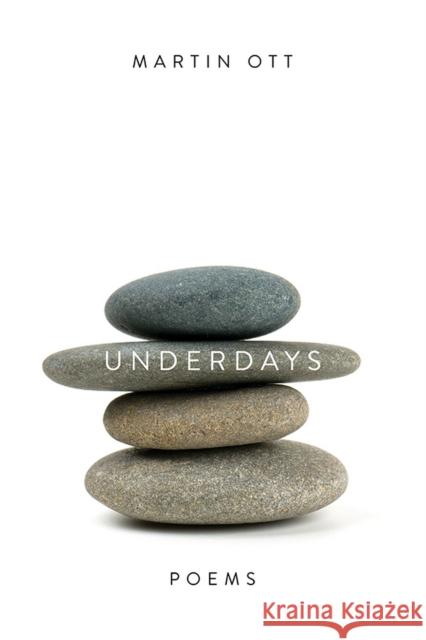Underdays » książka
Underdays
ISBN-13: 9780268037390 / Angielski / Miękka / 2015 / 72 str.
We encounter many voices in life: from friends and family, from media, from co-workers, from other artists. In a highly connected global world, where people and entities are electronically enmeshed, we filter these voices constantly to get to what we determine to be the truth. Taking inspiration from pop culture, politics, art, and social media, Martin Ott mines daily existence as the inspiration and driving force behind "Underdays."
"Underdays" is a dialogue of opposing forces: life/death, love/war, the personal/the political. Ott combines global concerns with personal ones, in conversation between poems or within them, to find meaning in his search for what drives us to love and hate each other. Within many of the poems, a second voice, expressed in italic, hints at an opposing force under the surface, or multiple voices in conversation with his older and younger selves his "Underdays" to chart a path forward. What results is a poetic heteroglossia expressing the richness of a complex world.
"In Martin Ott's new book of poems, "Underdays," there's nature, children, desire, war, and Los Angeles, but everything is shrouded with the speaker's experiences as an interrogator in the military an institution that leaves nothing untouched, even Ott's haunting and dark poetry. But more importantly, Ott's poetry is sonically beautiful and written with such a skilled hand a hand that was meant to write the poetry of a gifted and haunted soul." Victoria Chang, author of "The Boss "
"The poems in Martin Ott s "Underdays" are in-between the war and its aftermath, the love affair and its despair. In dense, often hauntingly musical verse, Ott interrogates our wide broken world, from Afghanistan to Los Angeles, with the unity of a singular, relentless voice." Dan O Brien, author of "War Reporter" and "Scarsdale"
"I so admire the spirit in Underdays that clearly wants to and does make beautiful poems, both in the midst of trouble and OUT of it. Turn the pages, and be met by beguiling surprises: madlibs, the heartfelt voice, jazzy soliloquies as bullets fly, lyric reveries in landscapes of dream. These poems feel pressured into being by all that's fleeting, and reading them, we may feel that toughest of dichotomies dig deeper in: 'the dangers of living, of forgetting.' " Nance Van Winckel, author of "Pacific Walkers""











